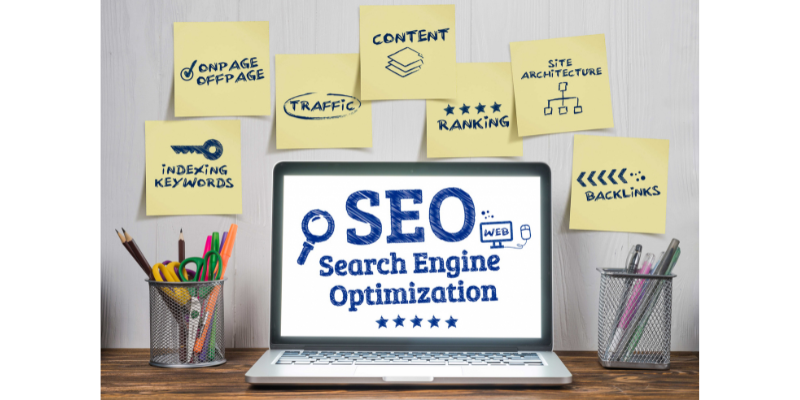Shaping Success: The Evolution of Marketing Strategies for 2025
Marketing isn't just a buzzword; it's an essential strategy for businesses aiming to thrive in the modern marketplace. By 2025, Marketing will continue evolving, offering companies more tools to connect with their audiences and achieve measurable results. Whether you’re a small startup or a multinational corporation, understanding the importance of Marketing is key to staying competitive. Let's explore the reasons why Marketing is indispensable and how businesses can leverage it for sustainable growth.
Why Marketing Matters More Than Ever
Businesses today cannot rely solely on traditional marketing methods. While print ads, billboards, and direct mail campaigns still have their place, Marketing lets companies reach their audiences where they spend the majority of their time—online. Here are some reasons why Marketing plays a pivotal role:
Audience Reach
The internet has removed geographical barriers, enabling businesses to connect with global audiences. Platforms like social media, search engines, and email marketing empower companies to target specific demographics with unparalleled precision.
Cost-Efficiency
Compared to traditional marketing, digital channels often require less investment. Tools like search engine optimization (SEO) enable businesses to optimize their site with the help of effective SEO experts, providing long-term visibility without breaking the bank.
Data-Driven Decisions
One significant advantage of Marketing is access to real-time data. Businesses can monitor customer behavior, analyze trends, and refine their strategies to improve return on investment (ROI).
Adaptability
The agility of Marketing means campaigns can be updated or optimized on the fly. From social media ads to email marketing strategies, there's room to pivot and respond to market demands instantly.
Customer Engagement
Marketing goes beyond just attracting customers—it helps businesses foster long-term relationships. Interactive tools like polls, webinars, and chatbots keep customers engaged and foster loyalty.
Top Marketing Tools for Success in 2025
Search Engine Optimization (SEO)
SEO continues to be a major pillar of Marketing. A strong SEO strategy ensures that your business appears in relevant search results, driving organic traffic to your website. Relying on an SEO experts tailored to your goals can help you stay visible in a competitive digital landscape.Email Marketing
Email remains one of the most effective channels, boasting impressive ROI. By 2025, email marketing will rely even more on personalization and automation. Understanding how to write compelling emails and track engagement metrics, as highlighted in resources like this guide, can lead to significant success.Educational Content Marketing
Providing valuable content is essential. Offering guides, white papers, or courses can establish your business as an industry leader. For example, professionals looking to upskill can take advantage of IT & Technical Courses Online to stay updated with the latest technical trends, demonstrating the vast possibilities of content in driving engagement.Social Media Marketing
Social media platforms are continuously evolving. Video content, such as TikTok or Instagram Reels, dominates engagement metrics. Exploiting paid ads with the help of a Facebook marketing agency alongside genuine content creation ensures you reach a broader audience effectively. You will gain quick engagement from effective paid ads, as well as organic growth through your content.Artificial Intelligence (AI)
AI is no longer “the future”—it’s the present. Businesses are leveraging AI for advanced customer support, predictive analysis, and content creation. By integrating AI tools, brands can create hyper-personalized campaigns that deliver greater relevance to their audience.
Adapting to New Consumer Trends
Mobile-First Approach
Most online interactions now occur through mobile devices. This means your website, content, and advertising strategies must be optimized for mobile users.
Sustainability and Social Responsibility
Consumers are increasingly favoring brands that advocate for sustainability and social causes. Crafting your messaging to incorporate such values can drive deeper connections.
Interactive Content
Formats such as quizzes, polls, and live streams are on the rise. They not only grab attention but also encourage active participation, making your brand more memorable.
Omnichannel Marketing
Customers expect a seamless experience across platforms. Whether they interact with your app, website, or social media, delivering consistent messaging reinforces trust.
Actionable Tips for Businesses
Prioritize Customer Feedback
Develop campaigns based on what your customers truly want. Use polls, surveys, and social listening to gather input.
Experiment with Emerging Platforms
Stay ahead of the curve by trying out new tools and platforms. Early adopters often gain the advantage of lower competition.
Leverage Analytics
Data is your most valuable asset. Evaluate metrics like conversion rates, click-through rates, and bounce rates regularly to improve performance.
Focus on Content Quality
Publish high-quality, relevant, and engaging content. Tailor it to meet your target audience’s needs and provide real value.
Closing Thoughts
As digital spaces become more crowded and consumer expectations rise, standing out will require more than just flashy campaigns. It’s about creating value through every interaction—whether that’s a helpful email, a well-optimized blog post, or an engaging social media story. Consistency, relevance, and empathy will define the brands that resonate.
Businesses that stay informed about new trends, invest in smart technologies like AI and automation, and put their audience at the center of every strategy will position themselves not just for growth, but for lasting impact. The digital world will only move faster from here. Now is the time to commit to innovation, experiment boldly, and market with purpose.
Share in the comments below: Questions go here

































